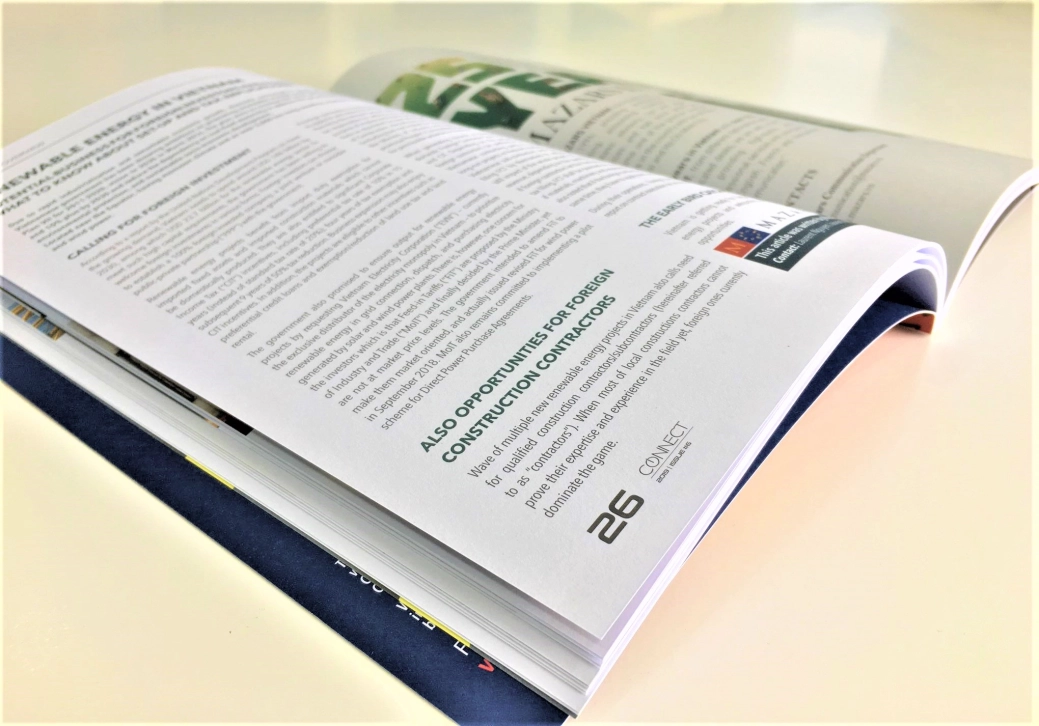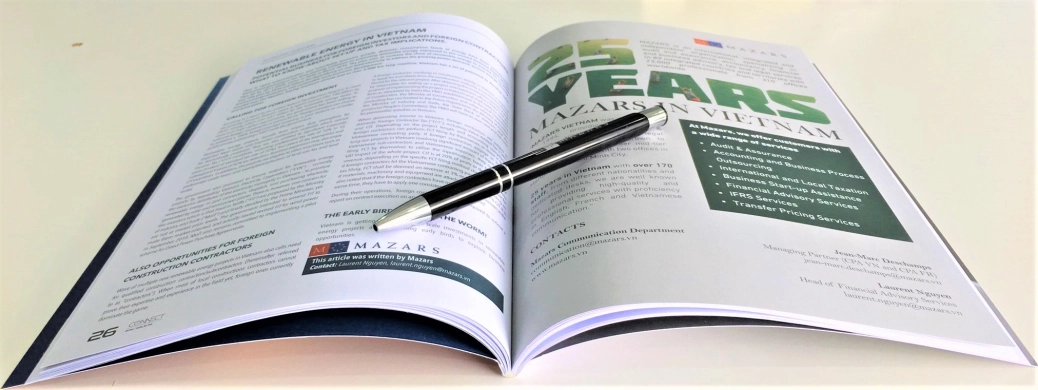
Mazars’ article on renewable energy in Vietnam
The article written by our professional team shared Mazars view on the needs and potential to develop the Industry of Renewable energy in Vietnam, the opportunity for foreign investment, its set-up and tax implication:
"Due to rapid industrialization and remarkable economic growth, domestic consumption levels of energy have been considerable. Vietnamese government has been showing ambitions on promoting renewable energy, expressed in the revised National Power Master Plan VII for 2011-2020, vision to 2030 in March 2016. The plan aims to increase the share of renewable energy to around 7% by 2020 and 10% plus by 2030 and reduce the dependency on coal-fired electricity to address the growing power demand, ensure energy security, environmental protection, and sustainable socio-economic development.
Located near the Equator, having monsoon climate and an over 3,000 km long coastline, Vietnam has a lot of potential to develop solar and wind power.
CALLING FOR FOREIGN INVESTMENT
According to a report by the United Nations Development Program, to meet the growing demand, Vietnam needs to spend around USD 148 billion by 2030, among which USD 23.7 billion for the renewable energy sector. To meet such high capital requirements, the government has been willing to welcome foreign investments in various forms. Foreign investors can choose to establish a 100% foreign-invested company, a joint venture or consider public-private partnership (“PPP”) with the government.
Renewable energy projects benefit from import duty exemption for imported fixed assets and imported construction materials which cannot be domestically produced. They are also entitled to significant Corporate Income Tax (“CIT”) incentives, including preferential tax rate of 10% in 15 years (instead of standard tax rate of 20%); four years of tax exemption and subsequent 9 years of 50% tax reduction. Business expansion may also enjoy CIT incentives. In addition, the projects are eligible to other incentives such as preferential credit loans and exemption/reduction of land use tax and land rental.
ALSO OPPORTUNITIES FOR FOREIGN CONSTRUCTION CONTRACTORS
Wave of multiple new renewable energy projects in Vietnam also calls need for qualified construction contractors/subcontractors (hereinafter referred to as “contractors”). When most of local constructions contractors cannot prove their expertise and experience in the field yet, foreign ones currently dominate the game.
A foreign contractor involving in construction activity in Vietnam is required to apply for and obtain from the construction authority a Construction Activity Permit for the relevant project. After obtaining the construction permit, it shall be responsible for setting up a project management office (“PMO”) for the purpose of implementing the project in Vietnam and shall notify (in standard form as stipulated by laws) this PMO establishment to the local Department of Construction, the Ministry of Construction and other relevant authorities (including but not limited to the Police Department, the Ministry of Finance, the Ministry of Industry and Trade, the State Bank of Vietnam, and the provincial People’s Committee). The PMO will have its own seal and tax code for permissible activities in Vietnam.
OUR SUPPORT
We do trust the above points are notable and sufficient, should you have any question or need a deeper discussion on this issue, please do not hesitate to contact us.





